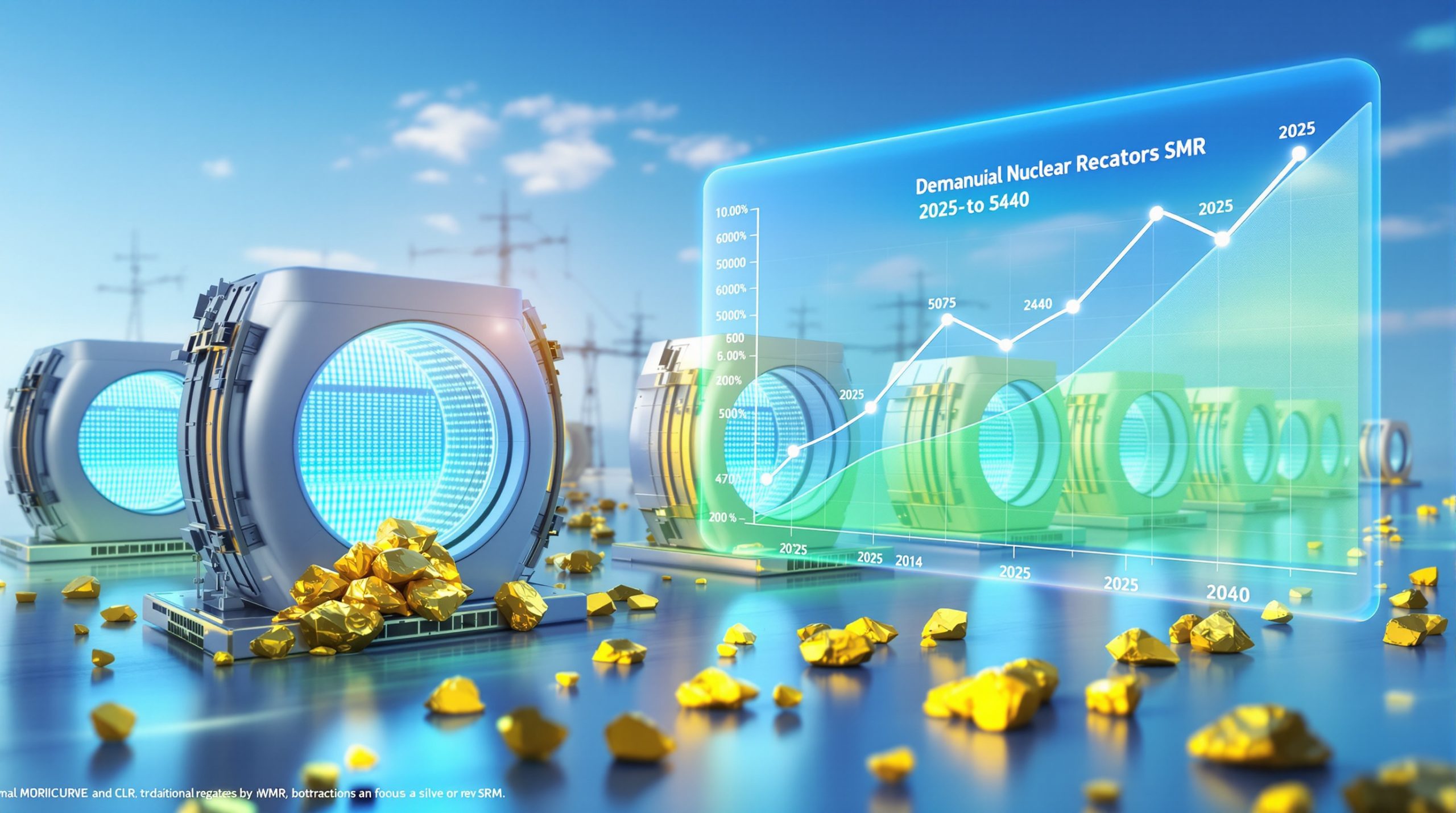Vulcan Elements and ReElement Technologies Forge Strategic Rare Earths Supply Partnership
The recent supply agreement between Vulcan Elements and ReElement Technologies marks a significant milestone in the U.S. rare earths industry. Signed in mid-July 2025, this five-year partnership represents a strategic move to establish a non-Chinese rare earth oxide supply chain, directly addressing critical national security and economic concerns that have plagued the sector for years.
This groundbreaking deal promises to deliver "thousands of metric tons" of rare earth oxides annually beginning in 2026, with a pricing structure reportedly "significantly below" the $110/kg Department of Defense price floor established for key rare earth materials.
Key Deal Highlights
The partnership brings together two privately-held U.S. companies with complementary capabilities in the rare earths value chain:
- Contract Duration: Five years beginning in 2026
- Volume: "Thousands of metric tons" of rare earth oxides annually
- Pricing Structure: Significantly below the $110/kg DoD price floor
- Strategic Focus: Creating a fully domestic U.S. rare earths supply chain
As Vulcan CEO John Maslin emphasized, "This pricing will enable Vulcan to be competitive in global markets. We wanted to make sure the unit economics made sense." This statement highlights the deal's focus on commercial viability rather than solely relying on government support mechanisms.
Strategic Market Positioning
The agreement positions both companies advantageously in the growing U.S. rare earths sector. ReElement's innovative chromatography technology allows for below-market pricing compared to competitors using traditional solvent extraction methods, while Vulcan gains a secure domestic supply of high-quality rare earth oxides essential for magnet production.
Mark Jensen, ReElement's CEO, reinforced the company's competitive approach: "We are laser focused on cost. We will see where the market goes, but right now we're focused more on the market price versus that price floor."
This deal notably contrasts with MP Materials' recent agreement with the Pentagon, which secured a $110/kg price floor guarantee in July 2025. By pricing their materials below this threshold, Vulcan Elements signs rare earths supply deal with ReElement Technologies that demonstrates confidence in their ability to compete commercially without maximizing government price supports.
How This Deal Impacts U.S. Rare Earths Independence
The Vulcan-ReElement partnership represents a significant advance in reducing America's dependence on Chinese rare earth supplies. For decades, China has dominated global rare earth processing, creating a strategic vulnerability for both U.S. defense and civilian technology sectors.
Building Domestic Supply Chain Resilience
This agreement creates a fully U.S.-based rare earths supply pathway, addressing several key vulnerabilities:
- Reduces reliance on Chinese processing and manufacturing capabilities
- Supports critical national security objectives for mineral independence
- Complements the recent Pentagon deal with MP Materials
- Aligns with broader government initiatives to secure domestic supply chains for critical minerals & energy security
The deal's significance extends beyond these two companies, potentially catalyzing further development across the domestic rare earths ecosystem.
Potential Policy Implications
According to information shared at a closed-door Washington meeting attended by Vulcan, ReElement, and other industry stakeholders, the Trump administration is reportedly considering extending price floor guarantees to additional firms in the sector.
This deal demonstrates that with innovative technologies and strategic partnerships, commercial viability alongside government support programs is achievable. It creates a precedent for other domestic rare earths partnerships and signals growing private sector confidence in the U.S. rare earths industry.
Innovative Technologies Driving This Partnership
The competitive advantage of this partnership stems largely from ReElement's groundbreaking processing technology, which represents a significant departure from conventional industry methods.
ReElement's Technological Edge
ReElement employs a proprietary chromatography-based separation technology licensed from Purdue University. This approach offers several advantages over traditional rare earth processing methods:
- More cost-effective than traditional solvent extraction used by competitors
- Enables the below-market pricing structure that makes the deal commercially viable
- Potentially more environmentally sustainable processing with reduced chemical usage
- Greater flexibility in handling various feedstock materials
This technological innovation is central to the partnership's ability to compete on price while maintaining profitable operations.
Diversified Sourcing Strategy
One of ReElement's key advantages is its flexible feedstock approach. The company's technology can process materials "from outdated electronics or from mine sites," creating a more resilient and diversified supply chain.
This capability offers several strategic benefits:
- Reduces vulnerability to supply disruptions from any single source
- Creates circular economy opportunities in the rare earths sector
- Potentially lowers overall input costs through recycling
- Minimizes environmental impacts associated with primary mining
By incorporating both recycled and mined materials, ReElement can optimize its input costs while providing Vulcan with consistent high-quality rare earth oxides.
Applications and Markets for These Rare Earth Products
The rare earth oxides supplied through this agreement will serve critical applications across both military and civilian sectors, addressing some of America's most strategic technology needs.
Defense Applications
Rare earth magnets are essential components in numerous defense systems:
- Fighter jet components and guidance systems
- Advanced radar and sensor technologies
- Precision-guided munitions
- Communication equipment
- Naval propulsion systems
As noted in the Reuters report, these materials are used "in fighter jets, radar and other military applications," making them crucial for national security. This strategic importance has led to the development of a comprehensive defence-critical materials strategy to secure these vital resources.
Civilian Applications
Beyond defense, rare earth materials are vital to numerous high-tech civilian applications:
- Electric vehicle motors and battery technologies
- Wind turbine generators
- Consumer electronics including smartphones and computers
- Medical imaging equipment
- Industrial automation systems
The growing demand for these technologies, particularly in the green energy and electric vehicle sectors, creates substantial market opportunities for domestically-produced rare earth materials.
How This Partnership Compares to Other Industry Developments
This agreement represents part of a broader trend in the U.S. rare earths sector, with several notable recent developments creating context for this partnership.
Recent Industry Milestones
The rare earths landscape has seen significant activity in recent months:
- MP Materials secured a Pentagon price floor guarantee of $110/kg in July 2025
- The closed-door Washington meeting discussing potential extensions of rare earths price floors
- Growing government focus on critical minerals security across multiple agencies
- Increasing private investment in domestic rare earths processing and manufacturing
These developments collectively signal a renaissance in the U.S. rare earths industry after decades of decline and offshoring.
Competitive Landscape Analysis
The Vulcan-ReElement partnership creates a new competitive dynamic in the sector:
- ReElement positions itself as a cost leader with its innovative chromatography technology
- Vulcan establishes a position as a domestic magnet manufacturer with secured supply
- MP Materials continues developing its fully integrated mine-to-magnets capability
- An emerging competitive domestic rare earths ecosystem begins taking shape
This diversifying landscape creates healthy competition while collectively building U.S. capabilities in this strategic sector. Furthermore, initiatives like the Critical Raw Materials Facility are emerging to support the development of secure supply chains for these vital materials.
Economic Implications of the Pricing Structure
The pricing structure of this deal has significant implications for the competitiveness of U.S. rare earth products in the global marketplace, particularly given China's historical dominance in the sector.
Price Positioning Strategy
By pricing their materials below the $110/kg Pentagon price floor guarantee, Vulcan Elements signs rare earths supply deal with ReElement Technologies that demonstrates a focus on market competitiveness rather than subsidy maximization:
- Creates a sustainable commercial model with less dependence on government support
- Demonstrates potential viability of U.S. rare earths industry on commercial terms
- Positions products competitively against Chinese alternatives
- Establishes pricing precedent for other domestic partnerships
As John Maslin stated, this pricing strategy "will enable Vulcan to be competitive in global markets," suggesting confidence in the partnership's economic fundamentals.
Cost Structure Advantages
ReElement's technological approach enables several cost advantages:
- Chromatography technology enables lower processing costs compared to solvent extraction
- Flexible sourcing from both recycled and mined materials optimizes input costs
- Domestic processing reduces transportation and tariff expenses
- Vertically integrated approach with Vulcan eliminates intermediary markups
These cost advantages are critical to the partnership's ability to price competitively while maintaining profitable operations. Many of these innovations reflect broader trends in mining industry innovation that are transforming traditional resource sectors.
Challenges the Partnership Must Overcome
Despite the promising nature of this agreement, several significant challenges remain for both companies and the broader U.S. rare earths industry.
Industry Hurdles
The partnership faces substantial obstacles in a market historically dominated by foreign competitors:
- Established Chinese dominance in rare earths processing and magnet manufacturing
- Scaling production to commercial volumes consistently
- Maintaining cost competitiveness without permanent subsidies
- Developing a complete supply chain from mining to finished products
Successfully navigating these challenges will require continued innovation, investment, and strategic execution.
Technical and Operational Considerations
From a technical perspective, several key challenges must be addressed:
- Proving ReElement's technology at industrial scale beyond pilot operations
- Ensuring consistent quality across production batches to meet stringent specifications
- Meeting the exacting requirements for defense applications
- Developing a specialized workforce with the technical expertise required
These operational challenges will be critical to the partnership's long-term success and ability to deliver on its commercial promises. Countries like Australia are addressing similar challenges through the establishment of Australia's strategic reserve for critical minerals.
FAQ: Understanding the Rare Earths Supply Chain
What are rare earth oxides and why are they important?
Rare earth oxides are compounds containing rare earth elements that serve as the precursor materials for producing rare earth metals and eventually permanent magnets. These materials are critical components in various high-tech applications including defense systems, electric vehicles, and renewable energy technologies.
Despite their name, rare earth elements are relatively abundant in the Earth's crust, but economically viable concentrations are less common, and processing these materials presents significant technical challenges.
Why is reducing dependence on Chinese rare earths significant?
China currently dominates global rare earth processing, producing approximately 85% of the world's refined rare earth products. This concentration creates supply vulnerabilities for industries relying on these materials, particularly defense and high-technology sectors.
The Chinese government has previously restricted exports of rare earths during diplomatic tensions, highlighting the strategic risks of over-reliance on a single source country for these critical materials.
How does ReElement's technology differ from conventional processing?
ReElement uses a chromatography-based separation process licensed from Purdue University rather than the traditional solvent extraction method that has dominated the industry for decades. This approach reportedly offers several advantages:
- Lower processing costs for certain rare earth elements
- Potentially improved environmental performance with reduced chemical usage
- Greater flexibility in processing different feedstock materials
- Ability to handle both recycled and mined material inputs
This technological innovation is central to the partnership's competitive positioning and pricing strategy.
What is the significance of the $110/kg price floor?
The $110/kg price floor established by the Pentagon for MP Materials represents a government guarantee designed to ensure the economic viability of domestic rare earth production regardless of market fluctuations or potential price manipulation by foreign competitors.
This price support mechanism helps mitigate the financial risks associated with developing domestic rare earth production capabilities, encouraging private investment in the sector while ensuring supply security for critical defense applications.
Future Outlook for U.S. Rare Earths Industry
Emerging Trends and Developments
Several key trends are shaping the future of the U.S. rare earths industry:
- A growing ecosystem of complementary rare earth companies covering different parts of the value chain
- Increasing government support through policy, procurement, and price guarantees
- Rising private investment in domestic rare earth ventures across the supply chain
- Technological innovation reducing processing costs and improving environmental performance
- Greater emphasis on recycling and circular economy approaches to rare earth sourcing
The Vulcan-ReElement partnership exemplifies many of these trends, potentially serving as a template for future industry development.
Strategic Considerations for Industry Watchers
For those monitoring the evolution of the U.S. rare earths sector, several key factors will influence future developments:
- Potential for additional partnerships across the supply chain as the ecosystem develops
- Impact of changing administrations on rare earths policy and support mechanisms
- Competition with other countries developing non-Chinese supply chains
- Long-term sustainability of domestic operations without government price supports
- Integration with broader critical minerals strategy across multiple technology sectors
The Trump administration's reported consideration of extending price floor guarantees to additional firms suggests continued policy support for domestic rare earths development, potentially accelerating industry growth.
Industry Perspective:
The rare earths sector represents a critical nexus of national security, technological innovation, and economic competitiveness. As geopolitical tensions increase scrutiny of supply chain vulnerabilities, partnerships like the Vulcan-ReElement agreement demonstrate how technological innovation can help address strategic challenges while creating commercially viable domestic alternatives to foreign-dominated supply chains.
Want to Profit from the Next Major Mineral Discovery?
Discover why historic mineral finds can deliver exceptional returns for early investors by exploring Discovery Alert's dedicated discoveries page, where our proprietary Discovery IQ model helps subscribers identify significant ASX announcements before the broader market responds.




